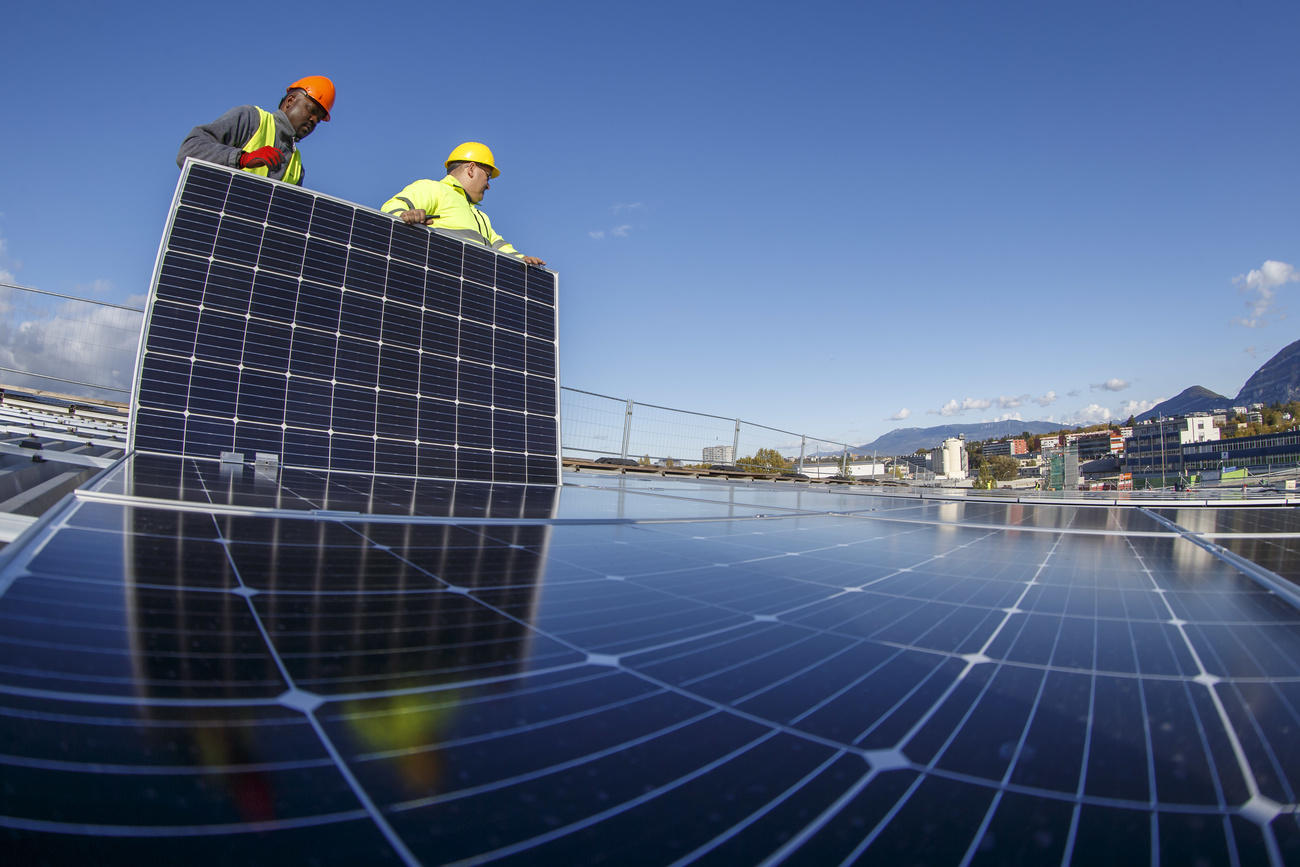
Swiss rank high in energy index

Switzerland has placed second in a global index comparing current energy systems and readiness for the transition to cleaner sources.
In its new Energy Transition IndexExternal link, the World Economic Forum (WEF) identifies the coronavirus pandemic as a serious threat to the switch to renewable energies.
“The transformation of the energy system over the past decade, although slower than required to achieve the objectives of the Paris Agreement to combat climate change, has been unprecedented. But this hard‑earned momentum now risks being lost, as the ongoing Covid‑19 pandemic continues to cause economic and social damage,” writes WEF on its website.
The Energy Transition Index compares 115 countries in terms of 40 indicators, such as current energy system performance as well as investment in new energy infrastructure.
Sweden, Switzerland and Finland captured the first three slots. Britain is 7th, Canada is 28th and the US is 32nd.
According to WEF, the coronavirus pandemic could be an opportunity to “consider unorthodox interventions in the energy markets”, especially if government economic stimulus packages include long-term strategies.

More
Using lake water to help reduce Switzerland’s carbon footprint

In compliance with the JTI standards
More: SWI swissinfo.ch certified by the Journalism Trust Initiative




























You can find an overview of ongoing debates with our journalists here . Please join us!
If you want to start a conversation about a topic raised in this article or want to report factual errors, email us at english@swissinfo.ch.